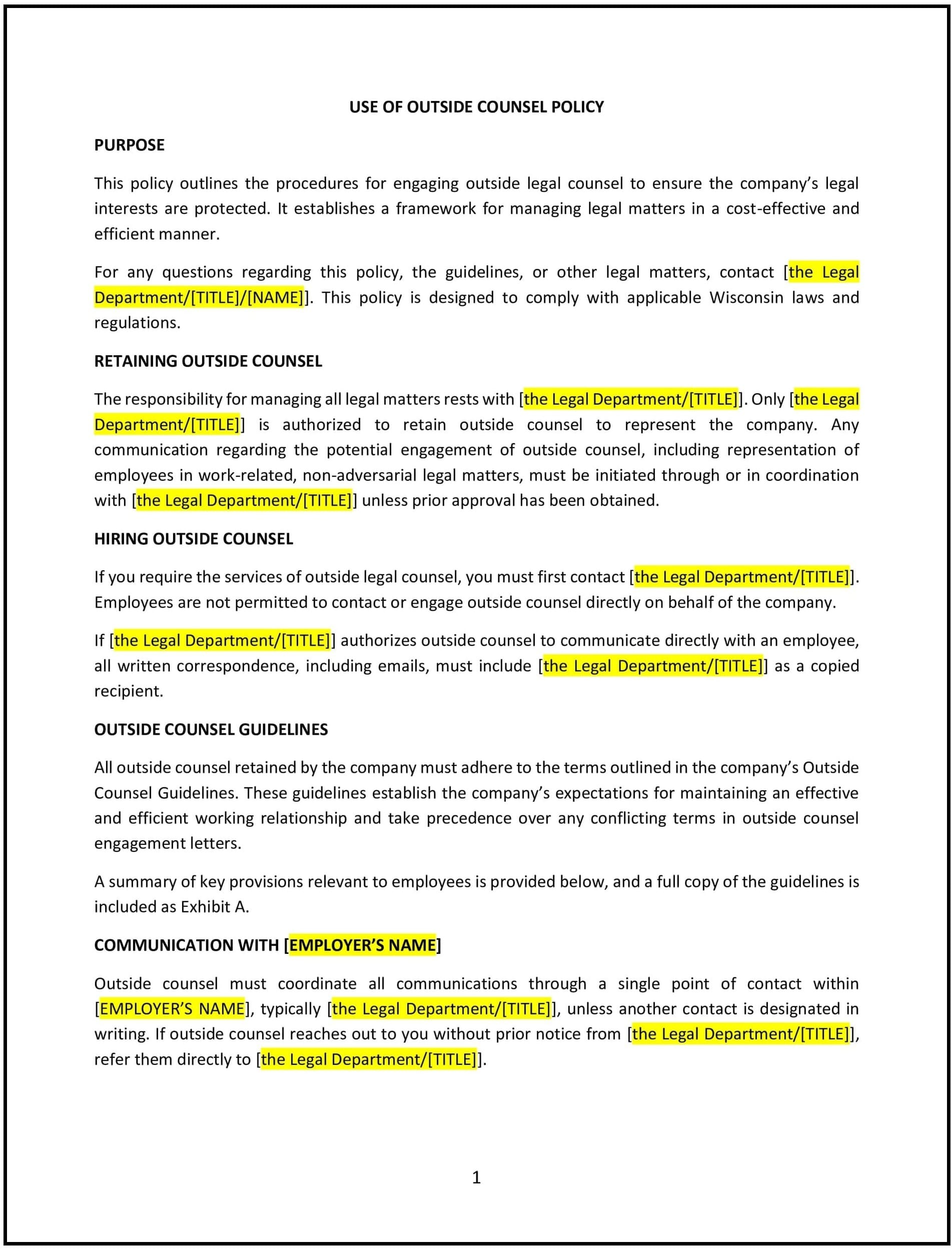Use of outside counsel policy (Wisconsin): Free template
Got contracts to review? While you're here for policies, let Cobrief make contract review effortless—start your free review now.

Customize this template for free
Use of outside counsel policy (Wisconsin)
In Wisconsin, a use of outside counsel policy establishes guidelines for engaging external legal counsel to address specific legal matters. This policy ensures that businesses maintain consistency, manage costs, and comply with legal and ethical standards while seeking specialized expertise from outside counsel.
The policy outlines the circumstances under which outside counsel may be engaged, the approval process, and expectations for working with external legal advisors.
How to use this use of outside counsel policy (Wisconsin)
- Define appropriate use: Clearly specify the types of legal matters that warrant engaging outside counsel, such as complex litigation, regulatory compliance, or intellectual property issues.
- Outline the approval process: Provide a clear process for obtaining approval to engage outside counsel, including required documentation and authorization levels.
- Set cost management guidelines: Establish expectations for budgeting, billing practices, and cost oversight when working with external legal advisors.
- Communicate responsibilities: Define the roles of internal staff and outside counsel to ensure efficient collaboration and accountability.
- Support compliance: Align the policy with Wisconsin legal and ethical standards, ensuring that engagements adhere to applicable rules and regulations.
Benefits of using a use of outside counsel policy (Wisconsin)
- Ensures consistency: Provides a standardized approach to engaging outside counsel, reducing variability and confusion.
- Manages costs: Establishes clear budgeting and billing practices, helping businesses control legal expenses.
- Enhances expertise: Ensures access to specialized legal knowledge for complex or industry-specific issues.
- Supports compliance: Aligns with Wisconsin legal and ethical standards for engaging external legal advisors.
- Promotes accountability: Clearly defines roles and responsibilities for internal staff and outside counsel, fostering effective collaboration.
Tips for using a use of outside counsel policy (Wisconsin)
- Vet outside counsel: Select legal advisors with relevant expertise and a proven track record in the required area of law.
- Monitor performance: Regularly review the performance of outside counsel to ensure quality and alignment with the company’s expectations.
- Maintain documentation: Keep thorough records of all engagements, including agreements, invoices, and communications with outside counsel.
- Provide clear instructions: Ensure that outside counsel receives detailed briefs and objectives to minimize miscommunication and inefficiencies.
- Review periodically: Update the policy to reflect changes in business needs, legal requirements, or industry practices.